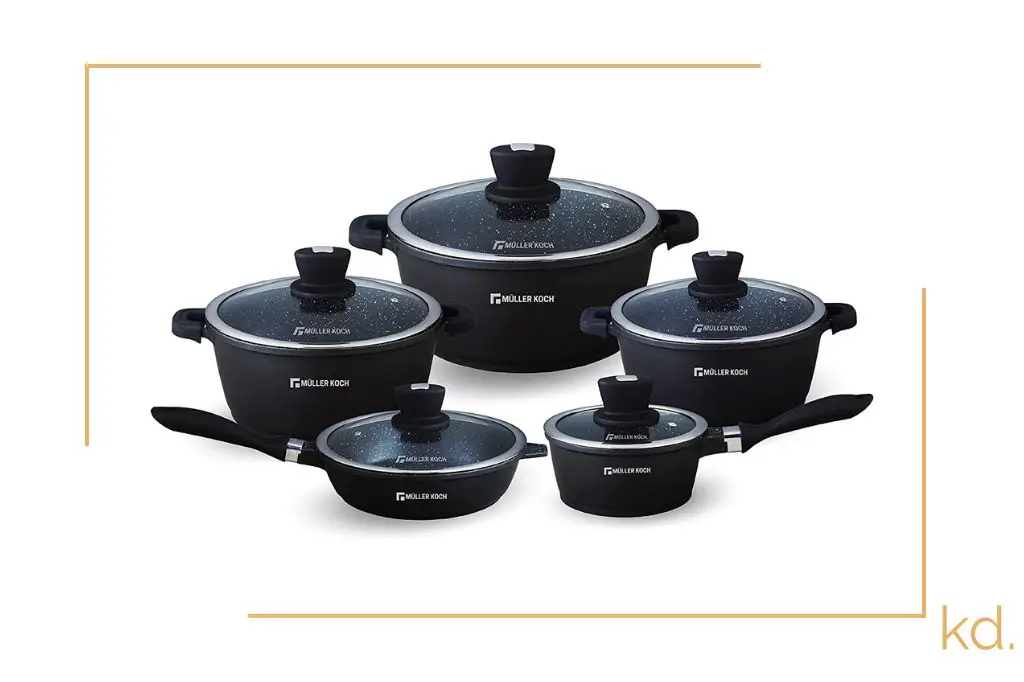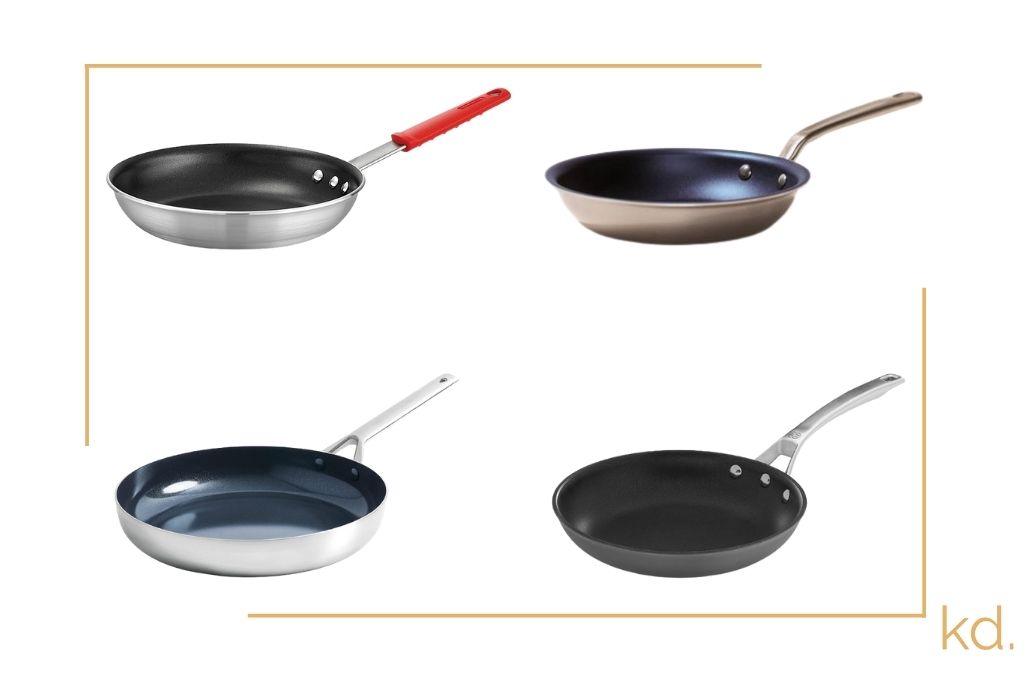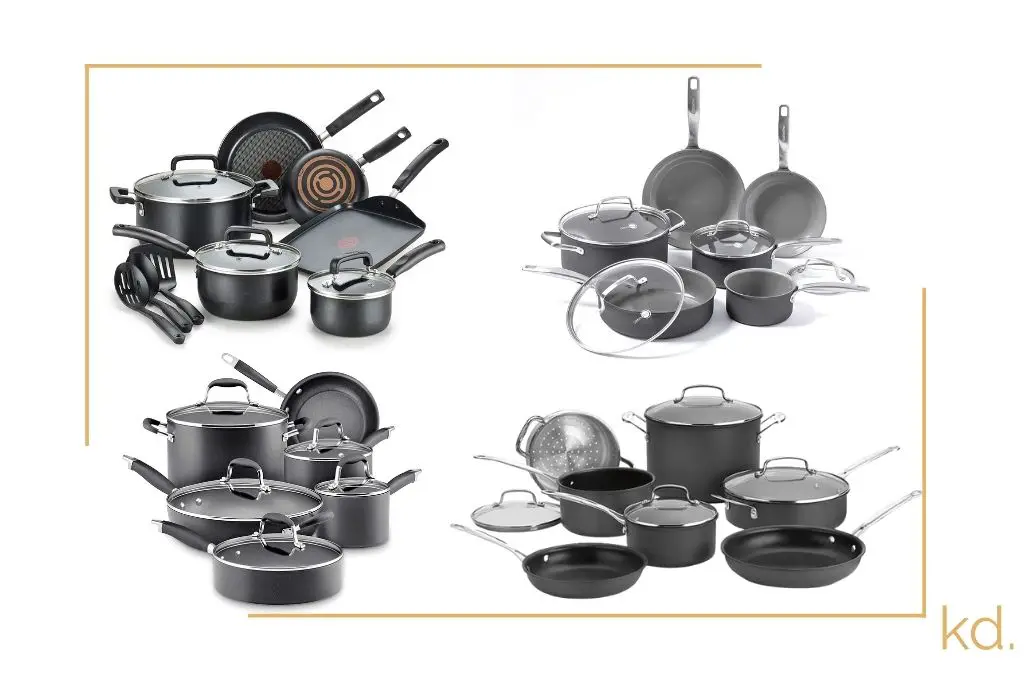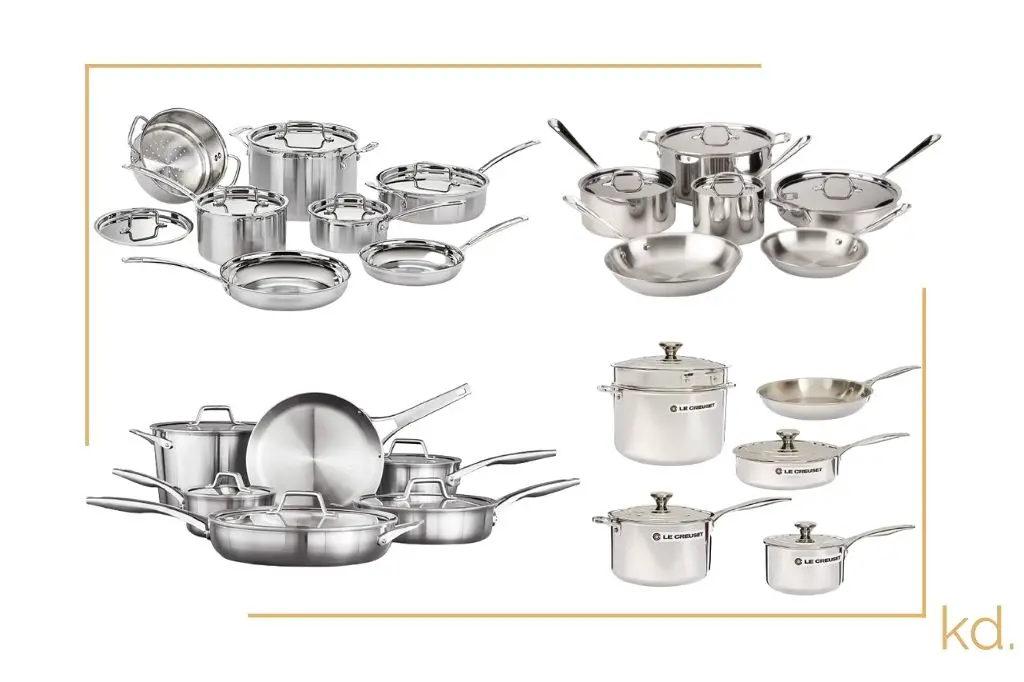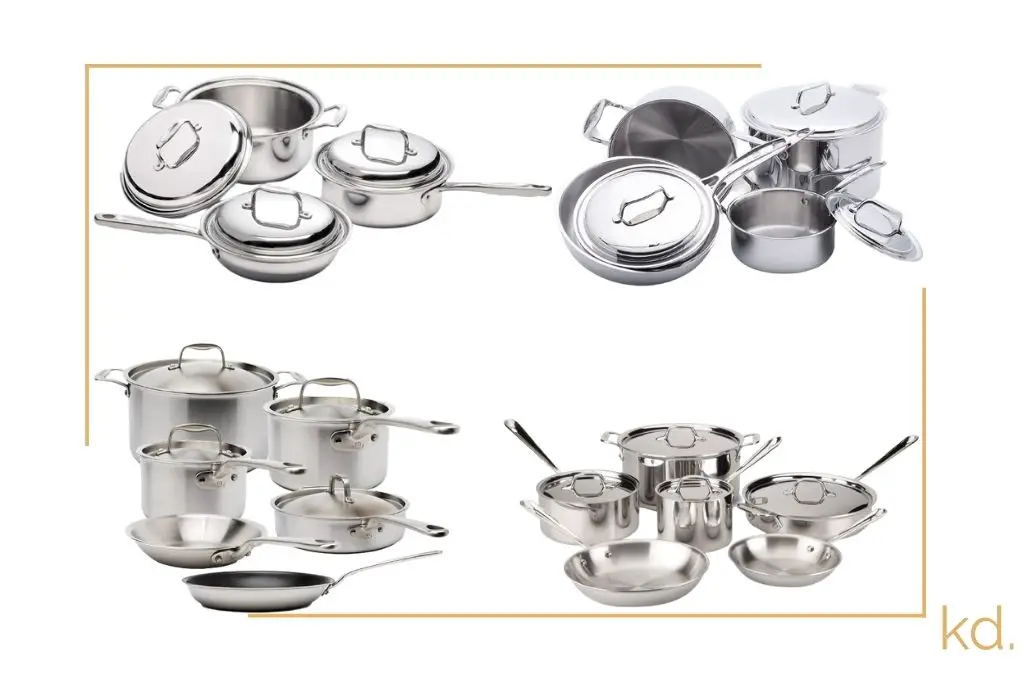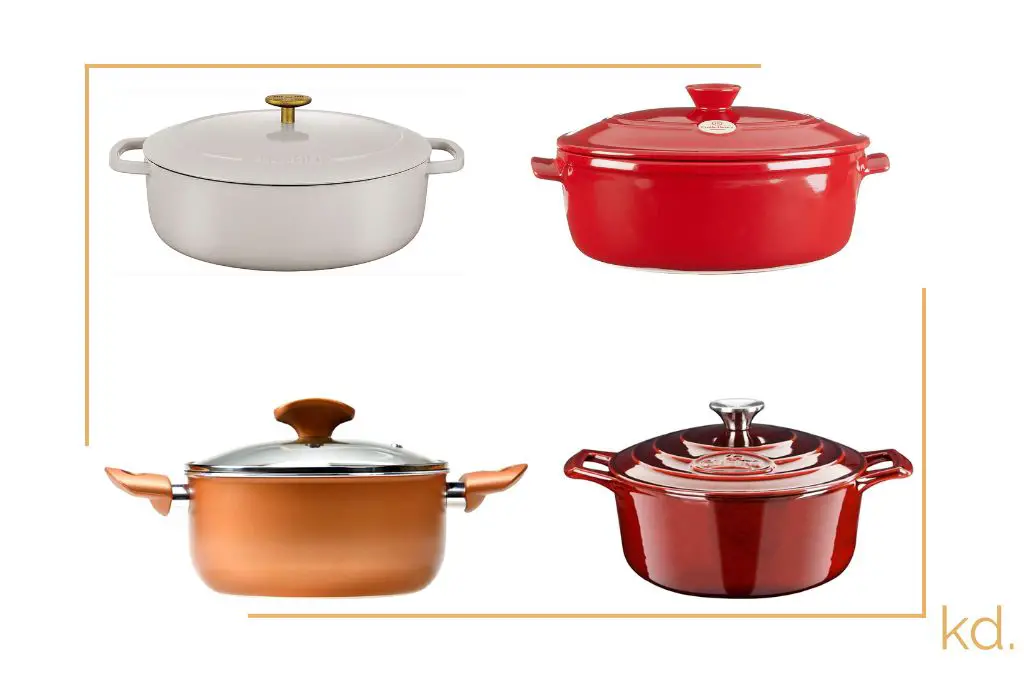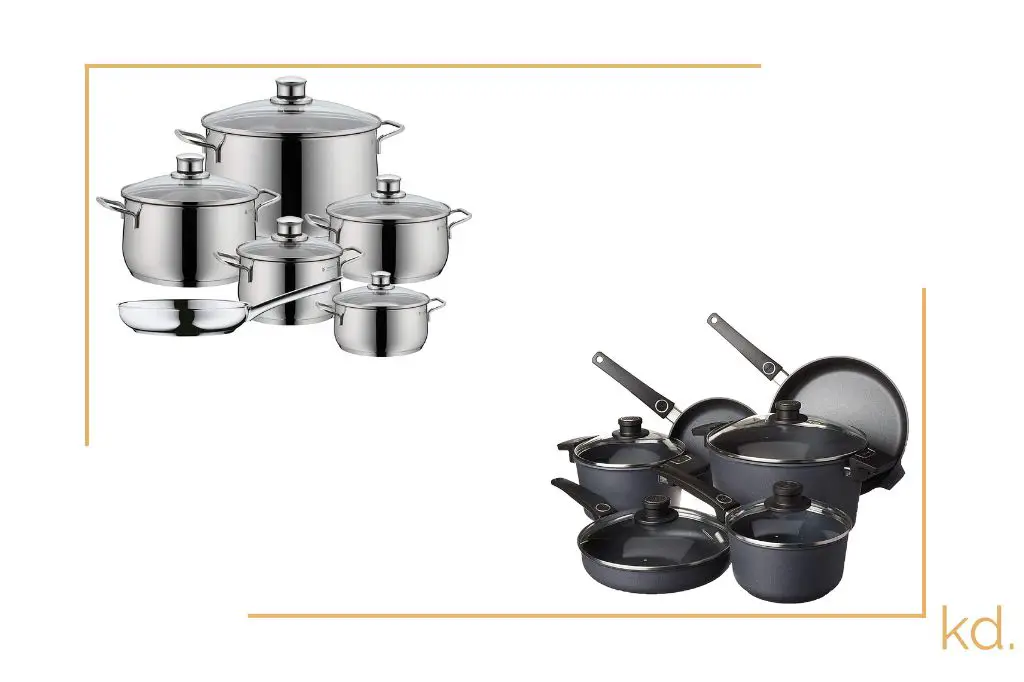Marble cookware has become increasingly popular in recent years, with more people claiming it can improve the taste of your cooking, thanks to its non-stick qualities and ability to even out temperature levels throughout your meal. However, others have also raised concerns about marble’s durability as well as how safe it is to use as cookware.
In this article, we’re going to take an objective look at the pros and cons of marble cookware so you can make an informed decision about whether or not this type of cookware would be good for you and your family.
What is Marble Cookware?
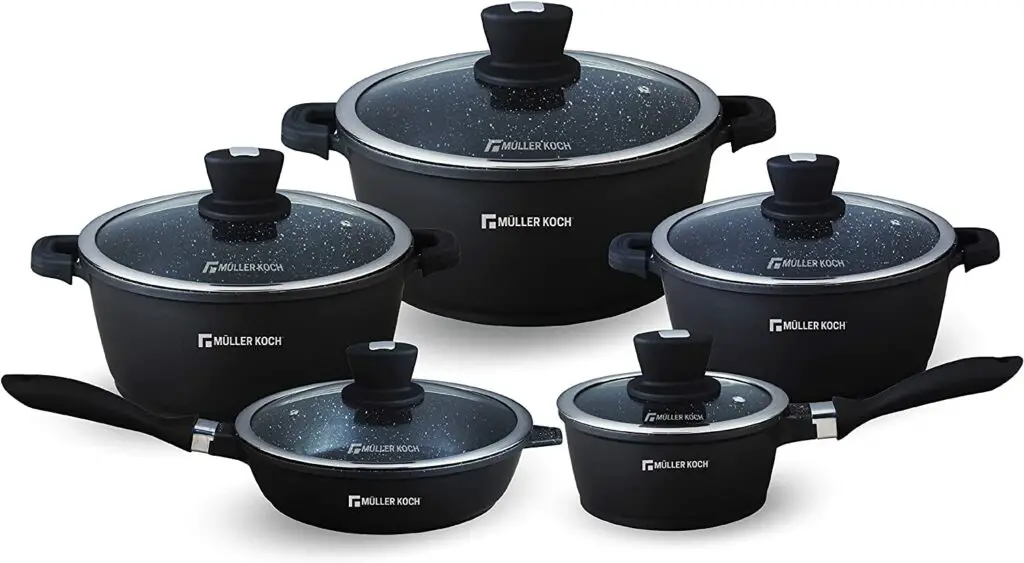
Marble is a natural material that’s been used for centuries to make cookware. It’s not only beautiful—it has wonderful thermal properties that help the food cook evenly and quickly. If you’re looking for a fast-heating ceramic surface that looks like real marble but won’t chafe your hands or dent your glassware, this is a perfect choice! It has a has a nonstick coating that makes food easy to remove from the surface after cooking.
Related: Glass Cookware
Marble Cookware Pros and Cons
If you’re like most people, you’ve probably heard of marble cookware and want to know whether it really makes that much of a difference in your cooking process as everyone claims.
Well, the answer isn’t so straightforward- while marble cookware does have its pros and cons, ultimately it will depend on your personal preference and how you plan to use it.
Here we will discuss Marble Cookware Pros and Cons starting with the pros.
Marble Cookware Pros
Marble cookware is an excellent choice for your kitchen. Not only is it durable, but it also has a nonstick coating that makes it easy to clean. Let’s take a look at Marble cookware pros.
Durable
Marble is a natural stone that has been used in construction for centuries. This means that it will last you a long time without showing signs of wear or tear. You won’t have to worry about your marble cookware breaking when you drop it or scratch it on a rough surface—it will stay looking beautiful for many years!
Related: Granite cookware pros and cons
Nonstick
Marble is naturally nonstick because the minerals in it bond together to create a smooth surface that doesn’t allow food particles to stick to it. This makes cleanup after cooking much easier!
Related: Cast aluminum cookware pros and cons
Easy to Clean
Because marble has such an incredible non-stick quality, cleaning is also much easier than with other types of cookware. Simply wipe down the surface with warm water and soap (or just use a natural cleaner like vinegar!) and you’re good to go!
Related: Titanium cookware pros and cons
Compatible with All Stovetops
Marble cookware works great on all types of stovetops including gas, electric coil, halogen, and induction heating elements without any special adjustments needed!
Great for baking
Because of marble’s ability to withstand high temperatures without cracking or losing its color or shape, it is an excellent choice for bakeware like casserole dishes and pie plates. And because marble is nonporous and nonreactive, it will not leach chemicals into your food—it’s safe for use in microwave ovens as well!
Lightweight
Marble Cookware is a great option for anyone who likes to cook. Marble is a beautiful and natural material that’s been used for centuries in cookware. It’s lightweight, which makes it easier to handle and lessens the risk of burns. It also distributes heat evenly, so you can enjoy perfectly cooked meals every time!
Related: Enameled cast iron cookware pros and cons
Even-Heat Properties
Marble has great thermal properties, which means it absorbs heat slowly but distributes it evenly across the surface area. This makes it perfect for cooking healthy foods like fish or vegetables—especially if you’re following an anti-inflammatory diet!
Related: Brass cookware pros and cons
Free from Toxic Material
Marble is a pretty material, but it’s durable and PFOA free. You don’t have to worry about toxic chemicals being released into your food when you use marble cookware. This means that you can use marble cookware every day without worrying about the health of your family or yourself.
Marble Cookware Cons
Marble cookware is a great choice for many reasons—it’s beautiful, it’s durable, and it can withstand high temperatures without chipping or cracking. But there are also cons to consider.
Not Dishwasher Safe
First of all, marble cookware is not dishwasher safe. This means that you’ll need to hand-wash your pots and pans after each use if you want them to stay looking new. If you don’t mind doing some extra work, this shouldn’t be much of an issue for you—but if you’re the type who likes everything done for you and is just looking for a quick solution, then this might be a deal breaker.
Prone to Chipping
Marble cookware is prone to chipping if used improperly (for example, by putting hot pots or pans on it). This can be costly, as this type of damage may require you to replace the entire piece of cookware.
Costly
Another downside is that marble cookware is quite pricey compared to other types of kitchenware. While this isn’t necessarily a problem if your budget is tight and you want something that will last for years (like stainless steel), it’s definitely something to keep in mind when purchasing anything related to cooking!
Should You Consider Buying Marble Cookware?
Marble cookware is a great choice if you’re looking for something that’s going to last you for years, and it comes with several benefits.
Marble is naturally nonstick, so you don’t have to worry about your food sticking to the pan. Its thermal conductivity is good at heating up evenly, which means you’ll be able to cook more foods at once.
However, marble is prone to chipping. If you are looking for cookware that will last a long time, then this might not be the best option for you.
What is Marble?
Marble is a form of metamorphic rock created when limestone sediment is subjected to intense heat and pressure. Marble stones are typically brownish in color, although they can also be found in other colors such as white, green, purple, red, or black.
